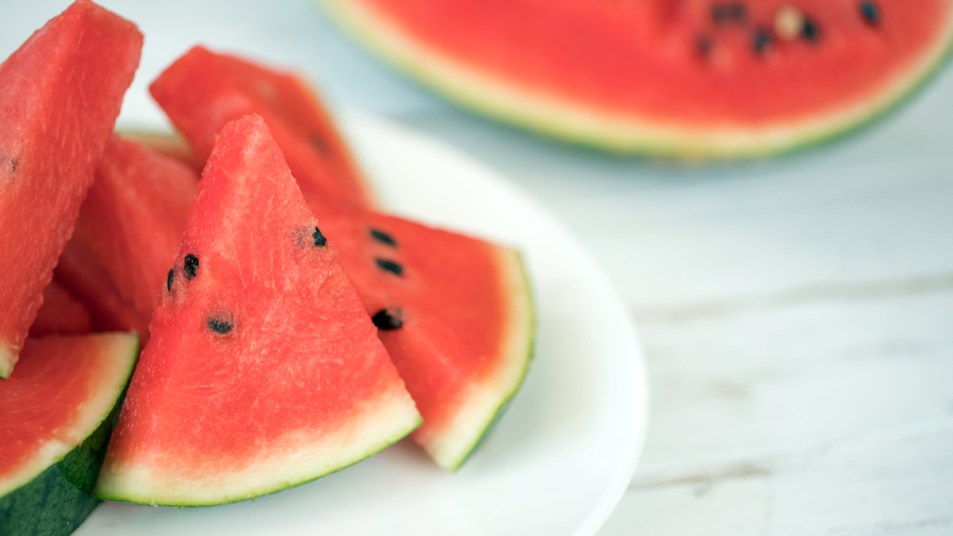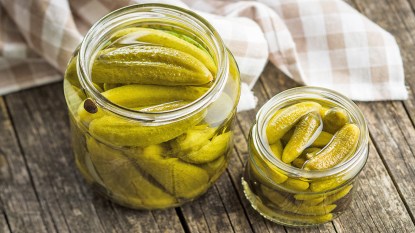Stay Hydrated, Ward Off Heart Disease, and Keep Eyes Sharp With This Summer Treat
This guilt-free snack just got a lot sweeter!

Whether we’re finally able to gather in larger groups for backyard shindigs this summer or simply relax in the sunshine all on our own, the warm weather always feels sweeter with a slice or two of watermelon to snack on. Along with satisfying our cravings for a fruity treat, watermelons also happen to be packed with a ton of amazing health benefits!
You might already know the low-calorie fruit (just 46 calories per cup) is great for guilt-free noshing, but that only scratches the surface of this nutritional powerhouse. As its name suggests, watermelons are made up of about 92 percent water that not only keeps us hydrated, but also helps us feel fuller longer and aids in digestion.
Now, if you think all that water content means there’s not enough room for any other perks, you’re wrong. A cup will also provide you with about 21 percent of the daily recommended intake of vitamin C and 18 percent of the daily amount of vitamin A.
As great as those boosts are alone, high levels of lycopene is the real hero tucked inside watermelons. An article published by the EXCLI Journal of Experimental and Clinical Sciences in 2014 broke down just how many ways the nutrient can make our bodies healthier — and it’s a pretty long list.
The authors found evidence that lycopene has the potential to ward off chronic issues like diabetes, hypertension, high cholesterol, neurodegenerative diseases (like Alzheimer’s), osteoporosis, and some cancers. That’s certainly nothing to sniff at!
Lycopene is a powerful antioxidant able to protect against free radicals and oxidative stress, which can either cause or exacerbate each of those problems. Low levels of lycopene have also been linked to age-related eye degeneration, so adding more of it to your diet can help you keep your vision from fading, too.
Tomatoes were previously known as the king of lycopenes, but this research suggests watermelon has a 40 percent higher concentration. Plus, tomatoes need to be heated up in order to truly unlock their lycopene levels, but watermelons already have plenty available in fresh slices.
A previous study highlighted even more cardiac health benefits, especially in post-menopausal women. Adding more watermelon to their participants’ diets showed a reduction in arterial stiffness, which aids in lowering levels of hypertension. Another study highlighted the presence of an amino acid called citrulline, which helps increase nitric oxide levels in the body, helping blood vessels expand to lower blood pressure.
The next time you bite into a watermelon, remember all of the incredible ways you’re pampering your body from the inside out!













